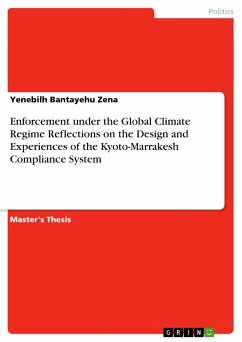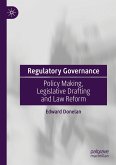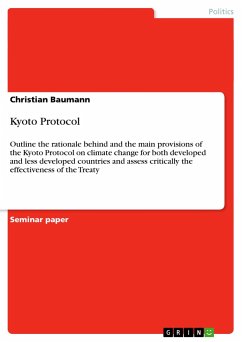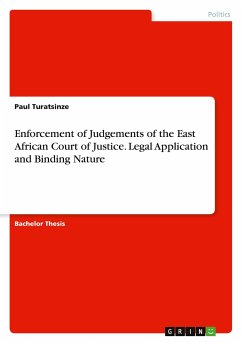Master's Thesis from the year 2013 in the subject Politics - Environmental Policy, grade: A, Stockholm University, language: English, abstract: As the Kyoto Protocol surges in to the second commitment period, growing attention is placed on adherence to the terms of the agreement. Bringing us to the subject of compliance, this study aims at examining the compliance system adopted by the protocol. With a contextual background in to the concept of compliance in international relations discourse, it looks up the development and features of compliance procedures in MEAs. With this foundation, the research continues to discussions on the more thematic and specific subject of examining the climate regime compliance procedure. It reviews the negotiation process of the compliance procedure, analyzes the organizational structure of the compliance committee, identifies the functions of its two branches, and examines the remedies applicable and their implication on propensity of states to comply. It is often submitted that the compliance system of the Kyoto Protocol is different from its counterparts in other MEAs. Checking the validity of such claims, the study aims at the following salient questions. -What new contribution has the Kyoto Protocol compliance system brought to development of compliance in MEAs? -Incorporating enforcement as its function, does the climate compliance mechanism offer strong procedural safeguards capable of enhancing credibility of the system? -Are the practical experiences gained by the enforcement branch consistent with the mandate entrusted to it by the compliance procedures? - Are there any loopholes within the Kyoto-Marrakesh compliance procedures? If yes, are they of such a magnitude to endanger the integrity and governance of the global climate regime? The discussion focuses on the quasi-judicial enforcement functions of the committee as this is acclaimed to be the flagship of climate compliance. A reflection on consideration of due process and fairness is tested against its impact on legitimacy of compliance decisions. A discussion on the road traveled so far reviews the practical experiences gained in both branches since 2006. Evaluations of the only case before the facilitative branch coupled with selected four cases handled by the enforcement branch illuminate the loopholes in the compliance system. Against these accounts; the study asks whether the mechanics employed by the compliance system have lived up to their promise of averting non-compliance.
Hinweis: Dieser Artikel kann nur an eine deutsche Lieferadresse ausgeliefert werden.
Hinweis: Dieser Artikel kann nur an eine deutsche Lieferadresse ausgeliefert werden.








